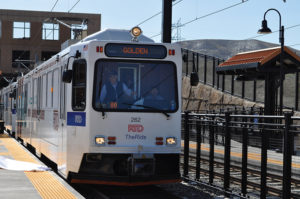Chicago Transit Board approves 2011 budget
Written by jroodThe Chicago Transit Board approved a $1.337-billion budget for 2011 that, through cost-conscious management, maintains current fares and service levels for riders. The proposed budget is $66.7 million, or 5.2 percent, more than the 2010 budget due in part to contractually dictated union wage increases, along with pension and healthcare obligations. These fixed increases will be partially offset by management efficiencies that are expected to save nearly $54 million in 2011.
Last year a borrowing
agreement between the RTA and the State directed that in return for CTA not
increasing fares for two years the agency would receive $83 million in bond
proceeds.
The CTA projects a balanced
budget as required by law. The public funding mark set by the Regional
Transportation Authority (RTA) is $529.3 million. This public funding level is
$92.5 million lower than in 2008 and $257.9 million lower than projected
following the passage of the state’s mass transit funding and reform bill (HB
656) in 2008.
To make up the difference
between what it has and what it needs, the CTA will transfer $113 million in
eligible capital funds to the operating budget. Although the State is
experiencing its own financial struggles, the CTA is relying on it to meet its
commitments to the agency for operating funds for this year and next, and
capital funds that have been promised.
The Recovery Ratio, which
measures the portion of operating expenses the CTA has to fund from revenues it
generates, is forecast at 54.6 percent, which is higher than the required ratio
set by the RTA and considerably higher than the recovery ratio required in
other transit systems across the country.
In the coming year, the CTA
will be moving ahead with the first order of new rail cars in more than 15
years. Also under way is a new initiative that will transform the way customers
pay for transit and allow the CTA to avoid an upfront capital cost to upgrade
fare equipment. The CTA also plans to implement a biometric time and attendance
system that will increase accountability and allow for better analysis due to
more centralized data.
The 2011 budget includes a
Capital Improvement Plan of $599.5 million, including $285 million in new state
funding promised in the recent state capital program. Once those funds are
received, the agency is ready with a list of projects that include overhauling
buses; rehabilitating bus garages and rail stations; upgrading substations and
replacing track to eliminate and prevent slow zones.
Also, following the
approval by the Chicago Transit Board of a 10-year contract with Sprint
Solutions, Inc., Sprint/Nextel became the sixth wireless service provider to
lease the use of CTA’s subway communications infrastructure. CTA will receive
approximately $3.1 million over the life of the contract. Installation and testing
of Sprint’s base equipment – comprised of amplifiers, transmitters and
receivers – within the subway will take place over the next several months.
Following installation, service is expected to begin in early 2011.
In 2005, CTA completed the
installation of technology to enhance CTA’s existing two-way radio system and
improve subway communications options for CTA, the Chicago Police Department
and Chicago Fire Department in the Red and Blue line subways. The improved
telecommunications system also laid the groundwork for the agency to generate
additional revenue by leasing its wireless infrastructure for commercial
service to allow the use of wireless devices, such as cell phones, text
messaging and wireless Internet modems throughout the 11.4-mile subway system.
Sprint joins AT&T,
Verizon Wireless, U.S. Cellular, T-Mobile and Cricket as the current wireless
service providers in CTA’s subway system. U.S. Cellular became the first
wireless provider to lease use of the infrastructure in 2006, while Verizon
Wireless signed on in 2008, and AT&T, Cricket and T-Mobile signed on in
2009.
CTA anticipates the leasing
of the subway network to the wireless service providers to generate a minimum
of $15 million for the CTA over the life of the contracts.





